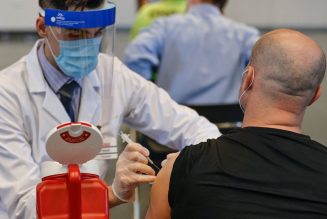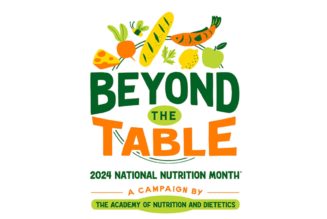
Lately, my social media feeds have been filled with excited couples announcing the expectation of new babies set to arrive in the second half of 2023 and early 2024. So, it seems fitting that I begin my column discussing the importance of dental health in one’s life as early as teeth begin developing in the sixth week of pregnancy.
It may be hard to imagine that teeth are developing that early, it is true! By the time a baby is born, all 20 baby teeth will be developed and the 32 permanent teeth that begin to make their appearance between ages 6-12 will already be forming underneath the baby teeth. So, I will begin encouraging expecting parents and those who may want to start a family in the future to set aside a few bits of knowledge now or implement a few dietary considerations to ensure they are supporting the babies’ developing tooth buds. This early on in a pregnancy or pre-pregnancy, it is essential to pay attention to your diet to make sure your body is getting the right amount of nutrients to store and use to develop healthy teeth that will need to last a lifetime.
The most obvious support once can give a developing baby is eating a balanced diet and taking a good quality prenatal vitamin. Vitamins A, C, D, protein, calcium, and phosphorus are especially necessary for the development of teeth. Foods like cheese, plain yogurt, milk, almonds, leafy greens, fresh fruits and vegetables, lean meats, poultry, fish, and eggs are all excellent foods to incorporate into your diet if you do not already. They will supply you with the vast majority of the wide range of nutrients the baby will need. Additionally, remember to drink plenty of water not only for hydration but to help cleanse the mouth after and between meals. This will help your teeth stay healthy as well. While it is advised to drink fluoridated water to protect teeth against cavities, there is no evidence that suggests that fluoride consumption during pregnancy leads to stronger tooth development in the baby you are or will be carrying.
When we talk about “Dos” we also should address the “Do Nots”. Always visit with your doctor about the medications you are taking that can be risky for a developing baby. While this is a complex topic, let’s keep it short and specifically mention the medications that affect tooth development. Antibiotics in the Tetracycline family should be avoided as they lead to permanent discoloration of teeth. Sulfa drugs can cause cleft lips and cleft palates. Benzodiazepines and barbiturates which are commonly used for anxiety or other uses should be avoided as well. Lastly, it is essential to avoid sugary or sweet drinks, seltzer waters and beverages with low pH levels as they often lead to significant tooth decay and pose a particular risk for pregnant mothers.
A couple dietary changes can help ensure you set up your developing baby for a lifetime of dental health!









